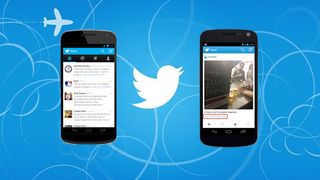Thatcher and intolerance: why you need to watch what you say on Twitter
Everybody's talking - but who's listening?

Whether you loved or loathed Margaret Thatcher, I think we can all agree on one thing: this week, she was responsible for an awful lot of people being unfollowed on Twitter.
There's something about politics that turns the best of people into swivel-eyed, foam-flecked lunatics, and an event as big as Thatcher's death is particularly polarising. Within minutes of the news, my Twitter feed turned into some kind of Idiot Olympics as people on the left and on the right tried to outdo one another in the Ignorance and Offensiveness events.
Those people may have been politically opposite, but they had two things in common: they weren't my friends, and I wasn't following them for their political views.
And now they have a third thing in common: what they posted will hang around forever.
That's not necessarily a good thing.
Just ask Paris Brown.
Post in haste, repent at leisure
If the name doesn't ring any bells, Brown is the newly appointed youth crime commissioner who tearfully resigned after being monstered by the Daily Mail. The 17-year-old has been forced out of her job after being dubbed a "foul-mouthed crime tsar" who posted a "vile Twitter rant".
Get daily insight, inspiration and deals in your inbox
Get the hottest deals available in your inbox plus news, reviews, opinion, analysis and more from the TechRadar team.
What's interesting about Brown isn't what she posted - browse nearby tweets in your Twitter app and you'll see much, much worse than anything Brown tweeted - but when she posted it. A woman has effectively been forced out of her job because of things she posted on her personal Twitter account long before she took the job.
Social media biting people in the backside isn't a new development, of course, but what's different about Twitter is that it's more public than other social networks - and in many cases the networks we build are based around our jobs, not our friends. Even when that's not the intention, as in Brown's case, your social networking activity can still affect your career.
I'm not sure we've really grasped the implications of that yet. For example, some of the most vicious post-Thatcher tweets I read were from people I'm connected to for work reasons and were posted to their work-related accounts.
Comments best kept between like-minded friends were broadcast to a network of hundreds. "Hey, I'm not just Reading's leading authority on grommet manufacturing!" those posts essentially said. "I'm an utter arse, too!" As sales pitches go, that one isn't brilliant.
I've written before that Twitter is like a pub, and I still think that's true - but I also think we tend to forget that every single thing we say is being recorded for posterity. In an ideal world we'd be able to say what we like online without fear of consequences, but as Paris Brown now knows all too well, that isn't the world we live in.
Writer, broadcaster, musician and kitchen gadget obsessive Carrie Marshall (Twitter) has been writing about tech since 1998, contributing sage advice and odd opinions to all kinds of magazines and websites as well as writing more than a dozen books. Her memoir, Carrie Kills A Man, is on sale now. She is the singer in Glaswegian rock band HAVR.
Most Popular


